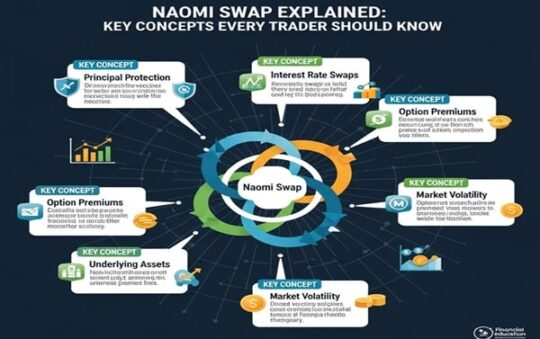Seeing 17029009482 flash across your phone screen can be unsettling. Is it a scam, a telemarketer, or something completely random? You’re not the only one wondering. From Los Angeles to Lexington, this number has been showing up on phones, leaving confusion, curiosity, and sometimes frustration in its wake. Let’s break it down and explore what’s behind these mysterious calls—and how to protect yourself.
Contents
I. The Digital Ghost Behind the Number
Calls from 17029009482 often arrive without warning, sometimes multiple times a day, occasionally at odd hours. You might answer to hear silence, a click, or a robotic message promising “limited-time offers” or warning about an account suspension.
This isn’t just a glitch. Numbers like 17029009482 are part of a vast system of robocalls, spoofed numbers, and automated call operations. Some are legitimate businesses, but many exploit loopholes in telecommunications to reach unsuspecting people.
II. Where Does 17029009482 Come From?
Breaking it down:
-
Country code “1”: This places it in North America.
-
Area code “702”: Officially assigned to Las Vegas, Nevada.
However, thanks to modern VoIP technology, the apparent location can be misleading. Calls can originate from anywhere in the world while showing a U.S. area code. This practice, called caller ID spoofing, allows scammers—or sometimes legitimate marketers—to mask their true origin.
Spoofing can also affect private individuals. Some people find their personal numbers hijacked without knowing it, while others are victimized by VoIP numbers leased in bulk to sales firms or less scrupulous callers.
III. Patterns Users Report
Online forums, Reddit threads, and call-report sites reveal consistent experiences with 17029009482:
-
Multiple calls in a day: Some users report being pinged repeatedly within hours.
-
Clicks or silence: Answering may lead to a disconnected line or no message.
-
Suspicious offers: Calls often attempt to sell fake warranties, insurance, or solicit personal information.
-
No voicemails: Avoiding voicemails helps the caller bypass spam filters.
A Reddit user, u/CallBlocked2025, shared:
“They called me six times in two days. Every time I answer, it clicks and hangs up. I finally blocked it, but how many numbers are out there like this?”
Numbers like 17029009482 are part of a broader problem. According to YouMail’s Robocall Index, over 50 billion robocalls hit U.S. phones each year.
IV. Is 17029009482 Dangerous or Just Annoying?
Not every call is overtly harmful, but caution is key. Some callers simply push products or conduct surveys, but others aim to manipulate or steal.
Here’s what to never do:
-
Don’t give personal info: Names, addresses, SSNs, or credit card details should never be shared.
-
Don’t press numbers: Prompts like “Press 1 to speak to a rep” confirm your number is active.
-
Don’t call back: Returning the call can mark you as reachable, inviting more calls.
Blocking a single number may not end the issue. Variants often appear with the same tactics, making vigilance crucial.
V. Why These Calls Keep Coming
Numbers like 17029009482 thrive because of systemic loopholes:
-
Overseas call centers: Many operate in countries with minimal oversight, making thousands of calls daily using U.S.-based VoIP numbers.
-
Bulk number leasing: Telecom resellers lease large batches of numbers to call centers with little accountability.
-
Regulatory gaps: Laws like the Telephone Consumer Protection Act (TCPA) exist, but enforcement is limited and penalties often pale compared to profits.
These mechanisms turn robocalls into a well-oiled machine. 17029009482 is not an outlier—it’s part of a larger blueprint.
VI. Technology Fighting Back
Tech solutions are improving, though slowly:
-
STIR/SHAKEN protocols: Help authenticate caller IDs and prevent spoofing. Adoption is ongoing.
-
Call-blocking apps:
-
Hiya
-
RoboKiller
-
Truecaller
-
Nomorobo
-
Many smartphones now label suspicious calls as “Spam Risk” or “Scam Likely.” These tools can filter unwanted calls before you even answer, though scammers continually adapt.
VII. The Emotional Toll
Robocalls are more than annoying—they can stress people out:
-
Waiting for an important job call and a suspicious number interrupts your focus.
-
Elderly relatives might panic over fake “account alerts.”
-
During emergencies, distinguishing real calls from scams becomes harder.
Numbers like 17029009482 erode trust in one of our most basic tools—phone communication.
VIII. How to Protect Yourself
You’re not powerless. Here’s how to fight back:
1. Report the number
2. Block and filter
-
Use built-in phone features or call-blocking apps.
-
Keep apps updated for real-time spam number blacklists.
3. Enable STIR/SHAKEN
-
Contact your carrier to confirm this feature is active, adding a layer of verification.
4. Educate family and friends
-
Make sure older or less tech-savvy relatives know how to handle suspicious calls safely.
IX. The Future of Scam Calls
Advances in AI and deepfake technology could make calls even more convincing. Imagine receiving a call that sounds exactly like your boss or child, asking for urgent help or money.
Numbers like 17029009482 are the precursors to these more sophisticated scams. Awareness is your first defense. Recognizing suspicious calls prevents manipulation and protects your personal data.
Also Read : The Role of Hürrilet in Shaping Contemporary Ideals of Liberty
X. Final Thoughts: What to Do With 17029009482
The number is emblematic of a broken communications system where automation and anonymity are weaponized.
Smart steps:
-
Ignore the call.
-
Block the number.
-
Report it to authorities.
This isn’t just about stopping one call. It’s about reclaiming control over your phone and digital interactions.
Next time 17029009482 lights up your screen, let it go to voicemail. Smile, block it, and move on. Knowledge is your shield, and now you know exactly what you’re dealing with.




